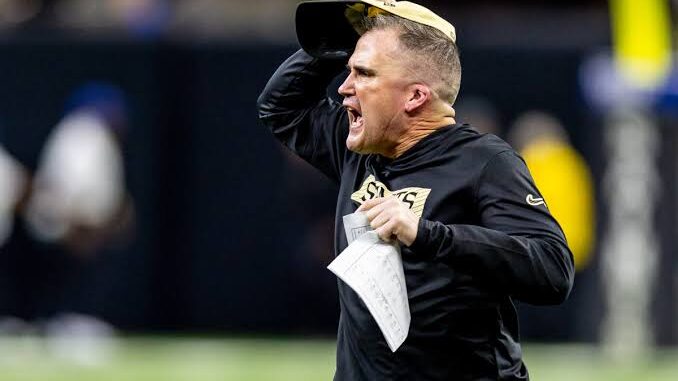
A recent report has revealed a clash between Juwan Johnson, a standout player for the New Orleans Saints, and interim head coach Darren Rizzi. The disagreement reportedly occurred after Johnson’s request for time off to care for his wife before her heart surgery was denied. This situation put the Saints’ coaching staff in a difficult position, balancing the team’s needs with the personal demands of one of its key players.

Juwan Johnson, a tight end who had emerged as one of the team’s most reliable offensive weapons, found himself facing a deeply personal crisis when he learned that his wife required heart surgery. Knowing the gravity of the situation, Johnson requested time off to be with her during what was sure to be a difficult and stressful time. His intention was clear—he wanted to provide support to his wife as she faced a potentially life-altering procedure.
However, Johnson’s request was reportedly denied by interim head coach Darren Rizzi. The coach, citing the importance of team preparation for an upcoming game, was firm in his decision to keep Johnson with the team, stating that his availability was crucial for the upcoming match. While Rizzi’s response was likely rooted in the need to ensure the team remained focused and ready for the game, it left Johnson in an extremely difficult position. On one hand, he was a dedicated player who wanted to do his part for the team; on the other, he was a husband facing the prospect of his wife undergoing serious surgery.
The refusal to grant Johnson time off sparked a tense interaction between him and Coach Rizzi. Johnson, understandably, felt torn and hurt by the decision, as he was being forced to choose between his family and his professional obligations. The situation illuminated the emotional toll that athletes often face when personal crises interfere with their career responsibilities. Johnson’s emotional distress was palpable, as his wife’s health was on the line, and his desire to be by her side was a natural priority.
Despite the personal turmoil, Johnson decided to honor his commitment to the Saints and participated in the game. His professionalism shone through as he took the field, demonstrating his dedication to his teammates and the organization. However, it was evident that his mind was partly preoccupied with his wife’s surgery. Johnson’s performance, while still impressive, was undoubtedly affected by the emotional weight of his personal situation.
In the wake of the incident, there were discussions among players and staff about the situation. Some of Johnson’s teammates expressed sympathy for him, understanding the tough position he had been put in. They recognized that while the coach had a responsibility to prioritize the team, the emotional and personal needs of a player should also be taken into account. Others within the coaching staff acknowledged that the situation was difficult and regretted that the team had not been able to accommodate Johnson’s request.
In the aftermath of the clash, Johnson and Coach Rizzi reportedly had a private conversation where they addressed the tension. Rizzi, recognizing the stress Johnson was under, expressed understanding for his personal situation and conveyed support for his decision to focus on his family. Although there had been friction, both sides seemed to have worked through the issue, with Johnson eventually being granted time to be with his wife after the game. The coach’s acknowledgment of the emotional challenges Johnson faced demonstrated a more compassionate approach, recognizing that family should always come first in such circumstances.
This incident serves as a reminder of the emotional and personal challenges professional athletes face, often behind the scenes. While fans and media tend to focus on their performances on the field, athletes are also human beings dealing with complex personal issues. In this case, Johnson’s story highlights the difficult balance athletes must strike between their commitments to their teams and their families, particularly when their loved ones are facing life-altering situations. It also underscores the importance of empathy and understanding from coaching staff and the organization as a whole, as they navigate these delicate matters.